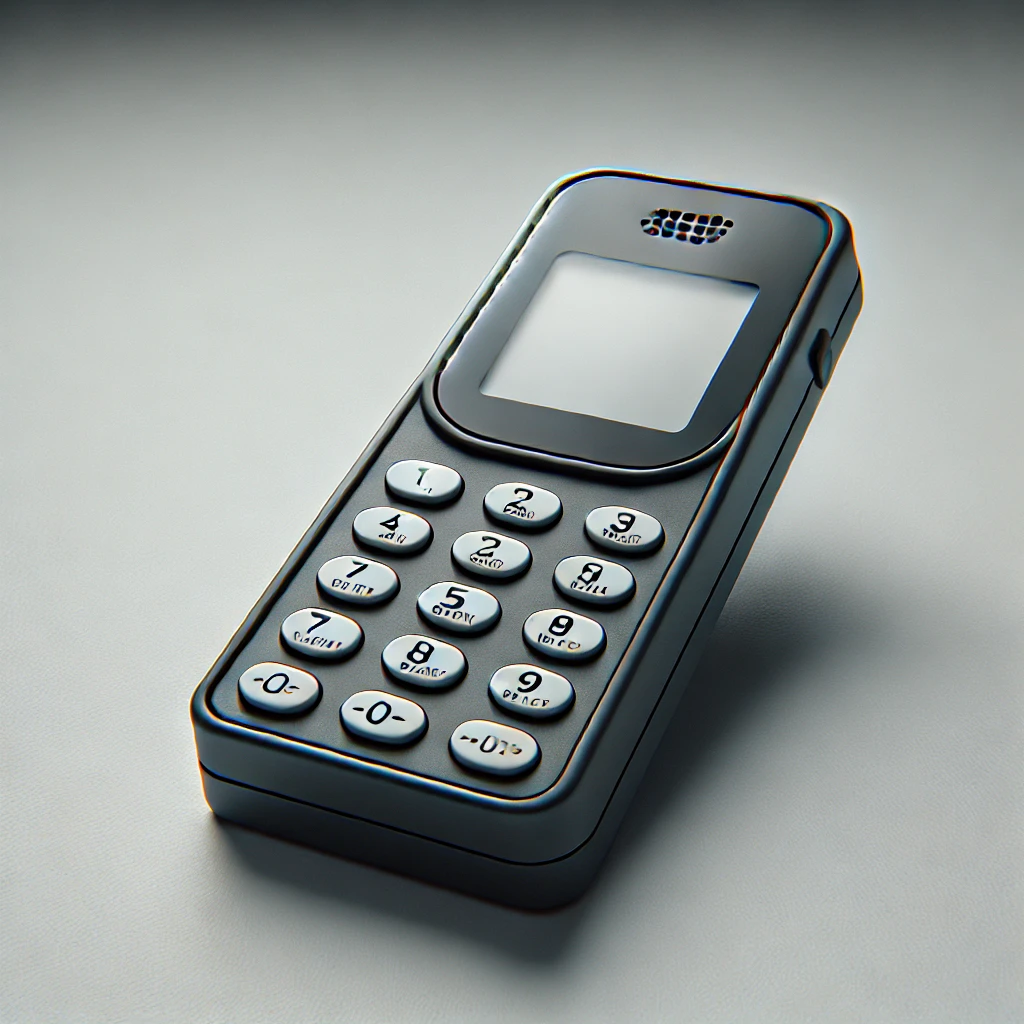Table of Contents Show
In an era dominated by smartphones, the idea of switching to a ‘dumb-phone’ may seem absurd. But there’s a growing number of people ditching their iPhones and Samsungs for simpler, more basic devices. Here’s why it’s not as crazy as it sounds and why you might want to consider making the switch.
1. Reclaim Your Time
Smartphones are engineered to be addictive. Between endless notifications, social media feeds, and app alerts, it’s easy to lose hours of your day. A dumb-phone, with its limited functionality, forces you to be more intentional with your time. Imagine how much more productive you could be without mindless scrolling. Whether it’s spending quality time with family, pursuing hobbies, or focusing on work, a dumb-phone helps you prioritize what truly matters. This simplicity allows you to regain control over your schedule and ensures that your time is spent on meaningful activities, not just endless digital distractions.
2. Better Mental Health
Studies consistently show that excessive smartphone use correlates with higher rates of anxiety, depression, and stress. Without the constant barrage of information and comparison, dumb-phone users often report feeling more present and less overwhelmed. The simple act of disconnecting from social media can work wonders for your self-esteem. With fewer distractions, you’re more likely to focus on your immediate surroundings and personal goals. Additionally, the reduced exposure to negative news cycles and online drama promotes a calmer, more stable mindset. Choosing a dumb-phone is a proactive step toward safeguarding your mental health and emotional well-being.
3. Improved Focus
Multitasking is a myth, and smartphones are the biggest culprits of distraction. A dumb-phone eliminates the temptation to check emails, scroll social media, or play games during work or study hours. This singular focus can significantly boost productivity. Imagine completing tasks faster and with greater accuracy because you’re not constantly interrupted by notifications. Over time, this improved focus can lead to better performance at work or school, giving you a competitive edge. By simplifying your digital environment, you’ll find it easier to concentrate on what truly matters and accomplish more in less time.
4. Enhanced Privacy
Smartphones track your every move, from your location to your online behavior. Switching to a dumb-phone minimizes your digital footprint, giving you better control over your personal data. With fewer apps and online accounts, there’s less opportunity for companies to collect or misuse your information. This heightened privacy can also protect you from hackers and data breaches. Whether you’re concerned about corporate surveillance or personal security, a dumb-phone provides peace of mind. By opting for a simpler device, you’re taking a proactive stand against the invasive practices of modern technology.
5. Longer Battery Life
Remember when phones could last an entire week on a single charge? With a dumb-phone, that’s still possible. No more carrying around a charger or worrying about your battery dying halfway through the day. This extended battery life is especially useful for travelers, hikers, and anyone who spends time away from power sources. It also reduces the environmental impact of constantly charging your device. Imagine the convenience of only needing to charge your phone once every few days. A dumb-phone’s energy efficiency makes it a practical and eco-friendly choice for anyone looking to simplify their life.
6. Reduced Costs
Smartphones are expensive. Between the initial purchase, monthly data plans, and constant upgrades, they can drain your wallet. Dumb-phones are a fraction of the cost and often come with cheaper service plans, saving you hundreds – if not thousands – a year. Additionally, dumb-phones are less prone to costly repairs and replacements. By switching, you’re not only saving money but also breaking free from the cycle of consumerism. Imagine redirecting those savings toward more meaningful investments, like travel, education, or retirement. A dumb-phone offers financial freedom without compromising essential communication needs.
7. Less Pressure to Stay Connected
In the smartphone world, there’s an unspoken expectation to be available 24/7. Dumb-phones free you from that obligation. You can still call or text, but without apps like WhatsApp, Messenger, or Slack, you’re not constantly bombarded with messages. This reduced connectivity allows you to set boundaries and prioritize your own well-being. Imagine the relief of not feeling obligated to respond to every notification immediately. By embracing a dumb-phone, you can reclaim your time and energy, focusing on the relationships and activities that truly matter without the constant pressure to stay connected.
8. Durability
Drop a smartphone, and you’re looking at a hefty repair bill. Dumb-phones, on the other hand, are built to last. Many are designed for rugged environments and can withstand drops, spills, and other accidents with ease. This durability makes them ideal for outdoor enthusiasts, construction workers, and anyone prone to accidental damage. Imagine not having to worry about shattering a screen or water damage. A dumb-phone’s robust design ensures reliability in any situation, giving you peace of mind and saving you money on repairs and replacements over the long term.
9. Encourages Face-to-Face Interaction
One of the biggest downsides of smartphones is how they’ve replaced in-person communication. A dumb-phone eliminates the screen barrier, encouraging more face-to-face interactions and deeper connections with those around you. Imagine attending a dinner without the temptation to check your phone. By being fully present, you’ll strengthen your relationships and create more meaningful memories. Whether it’s spending quality time with family, engaging in thoughtful conversations, or simply enjoying the moment, a dumb-phone helps you focus on what truly matters: human connection.
10. Promotes Mindful Technology Use
Switching to a dumb-phone doesn’t mean abandoning technology altogether. It means using it more thoughtfully. By separating essential functions like calling and texting from unnecessary ones like social media, you can create a healthier relationship with technology. Imagine a life where technology supports your goals instead of distracting from them. This mindful approach allows you to reclaim control over your digital habits, ensuring that your phone serves as a tool rather than a source of stress. A dumb-phone promotes balance and intentionality, helping you live a more focused and fulfilling life.
Choosing the Right Dumb-Phone
If you’re considering making the switch, it’s important to choose a device that meets your basic needs. Here are some popular options:
| Model | Features | Approximate Cost |
|---|---|---|
| Nokia 3310 | Call, Text, Basic Games | $50 |
| Punkt MP02 | Call, Text, 4G Tethering | $300 |
| Light Phone II | Call, Text, Music, Alarm | $299 |
| Alcatel Go Flip 3 | Call, Text, Basic Apps | $100 |
Each of these phones offers a minimalist approach, with just enough functionality to keep you connected without the distractions.
Overcoming the Fear of Missing Out (FOMO)
One common concern about switching to a dumb-phone is the fear of missing out. What if you’re not reachable? What if you miss an important update? The truth is, you’ll quickly realize most notifications aren’t urgent. Plus, the benefits of reduced stress and increased focus far outweigh the occasional inconvenience.
Final Thoughts
Switching to a dumb-phone isn’t for everyone, but it’s worth considering if you’re looking to simplify your life, save money, and improve your well-being. Think of it as a step toward reclaiming your time and attention in a world that constantly demands them. Are you ready to make the leap?









